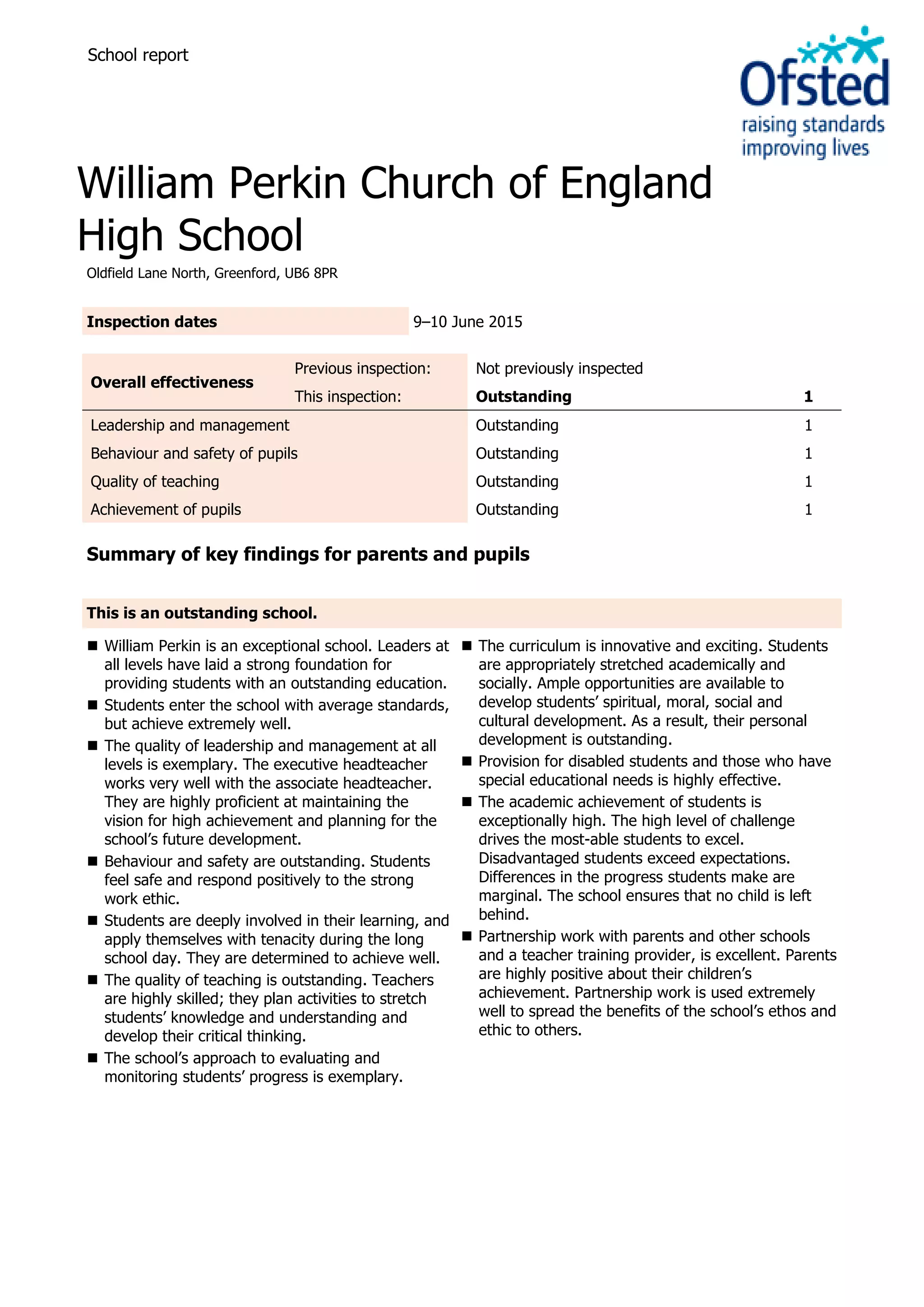This inspection report finds William Perkin Church of England High School to be outstanding in all areas evaluated. Leaders at all levels have established a strong vision for high achievement. Students enter with average attainment but achieve extremely well. Teaching is outstanding as teachers are highly skilled and plan engaging lessons that develop students' thinking. Students behave exceptionally well and feel very safe. They are motivated to learn and achieve excellent outcomes regardless of their backgrounds.









